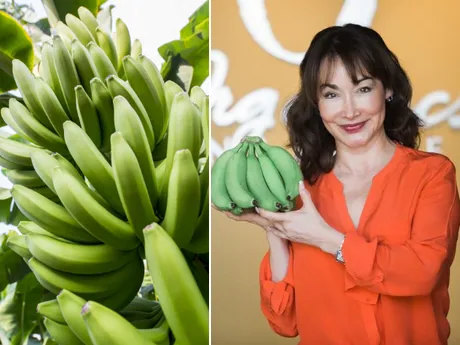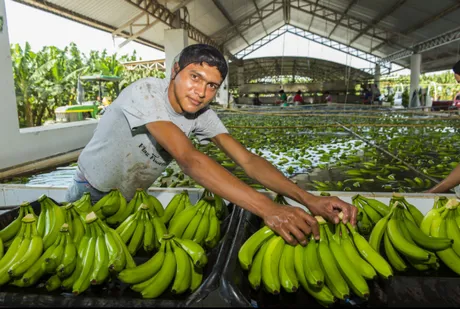Growing conditions for bananas in Latin America are very good and the industry anticipates consistent production throughout the remainder of the year for Mexico as well as Peru, Guatemala, Colombia and Ecuador.
Organic production requires drier climate
From a demand perspective, there is significantly more interest for organic bananas. “Demand for bananas continues to grow. With bananas being one of the primary drivers of organic produce sales, the number of consumers who purely eat organic bananas is up from previous years,” says Mayra Velazquez de León with Organics Unlimited. As a result of increased demand, Velazquez de León is seeing significantly more interest in organic production. However, organic production of bananas is not possible everywhere bananas are grown. It requires a drier climate that is conducive to growth without the use of conventionally used pesticides and fumigants. “Because of this, we see the biggest growth among countries such as Ecuador, Peru and Mexico. Central Mexico in particular, has seen a boom in organic production thanks in part to its climate, fertile soil and prime location as a neighbor to the United States, one of the organic industry’s biggest consumer markets,” Velazquez de León said.
 Mayra Velazquez de León.
Mayra Velazquez de León.
Rush to meet organic requirements
“Increasing organic production does not mean an equal shift to fairly traded production,” she added. “Especially as large players are entering the market of organic, there is a rush to meet requirements for organic production, but the organic label does not automatically signify fair trade practices which is why it’s important to be conscious of what is behind the brand(s) we choose to support.”
Now more than ever consumers are interested in transparency. They want to know who is growing their food, whether they engage in ethical labor practices, and how they are supporting their communities. “It is on us as distributors and, especially, retailers to educate consumers on the impact of their purchases when they choose to support something like our GROW label, which helps growers and gives back to their families, communities and environment,” Velazquez de León shared.
Asia offers export opportunities
Latin America primarily exports its bananas to Europe and the United States. However, there are opportunities for new markets. “Asian markets, especially China, are opening up to the global organic banana market and the industry warmly welcomes them,” said Velazquez de León. “Japan is a growing market for us at Organics Unlimited and we continue to explore other opportunities in that region as well.“

Threats to the industry
Along with the threat of trade tariffs, one of the biggest threats is the downward pressure on price as larger players enter the market of organic bananas. “It’s vital that we don’t lose sight of what goes into growing a banana because there are human beings behind it, and entire countries depend on this crop,” Velazquez de León mentioned. Organic production specifically requires stringent processes and significantly more labor to ensure the fruit is thriving organically. “It is our job to educate consumers on what is behind the higher cost of organic, which is the true, fair cost of that produce.”
For more information:
Mayra Velazquez de León
Organics Unlimited
Tel: (+1) 619-710-0658
mayra@organicsunlimited.com
www.organicsunlimited.com
